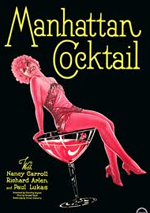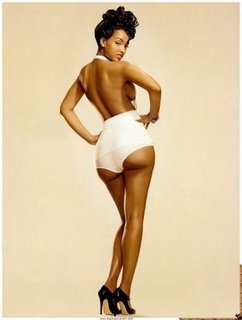What’s the significance of fashion and beauty on The L Word? This question and others are asked by The Ginja Ninja in her recent post. Check it out and come back here for my response!
The Ginja Ninja discusses the characters’ fashion and beauty practices as an enactment of 3rd wave feminism, but I think the rise of lesbian chic and the distinctive subcultural style of LA lesbians are much more influential on the social world of The L Word. There’s a great NY Times article, “The Subtle Power of Lesbian Style,” which discusses the enormous impact LA lesbian style has had in the worlds of fashion and pop culture. Contrary to popular stereotypes, “fashion” and “lesbian” are hardly a contradiction in terms!
In the first episode in which Moira/Max is introduced (as Jenny’s lover), Bette remarks, “I just don’t see why Jenny feels she has to role-play like that.” I don’t think this is an example of the group’s “up-to-date gender politics,” as you assert. To the contrary, this is precisely what 2nd wave lesbian-feminists said about butch/femme! I’ve written a lot on this blog about the dismissal of butch/femme as role-playing, so I won’t repeat myself here. However, we should ask: does this demeaning attitude about butch/femme reflect the LA scene, at least to some degree? I think this attitude–and the presentation of butches as “archaic”–demonstrates some of the show’s profound limitations around gender identity and expression.
I think it’s important not to conflate “feminine lesbians” and “femme.” For example, you refer to Jenny as “unmistakably femme,” but I’m not sure I agree. Many femmes, myself included, feel that femme identity is not just about how you look, and is not equivalent to being conventionally pretty or “feminine” (although some of us are simply ravishing, I must admit). For example, there are (equally ravishing) tomboy femmes, gender-transgressive femmes, etc.
There’s a reason Tila Tequila says she’s into lipstick lesbians! Unlike lipstick lesbians (I know I’m generalizing here), femmes tend to be self-conscious about how we create our gender, which we often experience as complicated–maybe this explains why we’re all blogging! In my experience, femmes have been very engaged in theorizing femme identity in relation to and as part of feminist, queer, genderqueer and transgender discourses and communities. Obviously, this isn’t true of all femmes but it does highlight a point of pride for many of us: as Jewelle Gomez puts it, we refuse to be muted or assimilated.
Where’s the challenge and provocativeness of lesbian sartorial styles on the show? I’m certainly NOT saying that the characters of The L Word are assimilationist because they’re fashionable and/or feminine. Instead, my concern is that lesbian style on The L Word often functions as a vehicle for dissolving and/or absorbing social and cultural difference.
Filed under: Lesbian & Queer Genders, Queer Femininity | Tagged: butch/femme, fashion, lesbian style, The L Word | 5 Comments »










